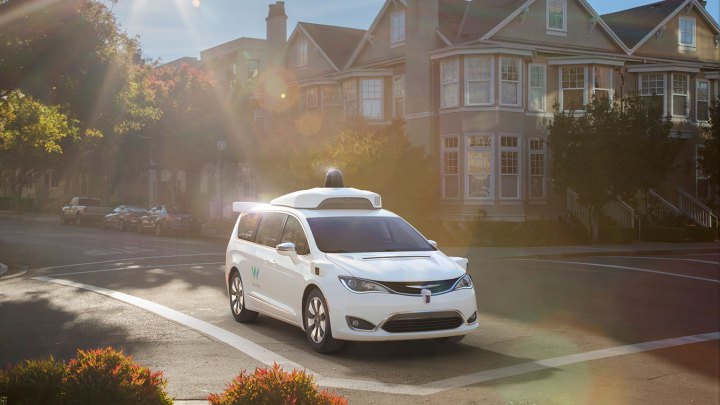
With that in mind, Waymo, the Alphabet-owned company that has taken charge of Google’s self-driving efforts, is launching a public education campaign in a bid to convince road users that self-driving cars “can transform our lives.” For the better, that is.
The campaign’s opening blurb certainly paints a pretty picture of life without human drivers: “Imagine climbing into the backseat of a car and just pushing a button to go. You don’t have to drive at all. Your driver — the car — handles all of it, while staying constantly vigilant and seeing 360 degrees all around you. Everyone moves around safely, drunk and distracted driving become a thing of the past and we all get time back in our day.” What’s not to like?
Waymo CEO John Krafcik said his company is working with a number of organizations — Mothers Against Drunk Driving, the National Safety Council, and the Foundation for Senior Living among them — to launch what he says is the “world’s first” public education campaign geared toward highlighting the benefits of driverless cars.
Waymo’s effort to persuade regular folks that riding in a self-driving car is a better bet than riding in one driven by a human will involve digital, outdoor, and radio advertising, while a new “Let’s Talk Self-driving” website will offer relevant information and advice. There’ll also be opportunities for people to get up close to the technology, Krafcik said, which could mean special events offering rides in driverless cars.
The campaign kicks off this week in Arizona, presumably because that’s where Waymo is currently testing its autonomous-car technology on regular roads. The trial, which launched earlier this year, involves local volunteers taking rides as part of a driverless taxi service. At this stage, however, safety regulations mean an engineer has to be present in the vehicle at all times, in case, well, you know ….
While an increasing number of people are coming to understand the potential benefits of autonomous cars, many still need convincing that the technology is safe enough for the transformation to take place. Waymo hopes that over time its campaign can play a positive part in persuading road users to embrace driverless vehicles.

